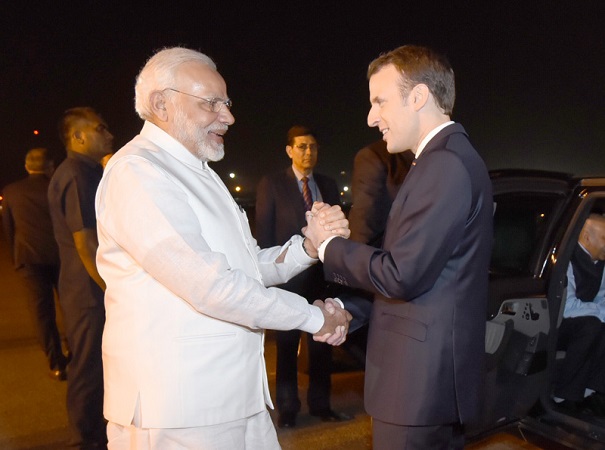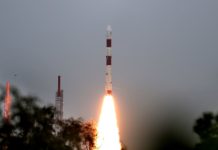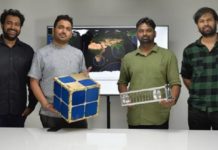India and France have signed a Joint Vision for Space Cooperation, in which both parties have agreed to cooperate on all areas of space technology.
This latest document, which reaffirms the long-standing relationship between the two countries’ space agencies, was signed on 10 March during the visit of French President Emmanuel Macron to India, where he met with India’s Prime Minister Narendra Modi.
The Joint Vision mentions the success of ongoing cooperation between India’s space agency ISRO and France’s space agency CNES, and is a wide-ranging document covering all aspects of space, including high-resolution earth imaging, satellite navigation, deep space exploration, and space law.
Interestingly, much of the document is about space exploration and rocket technology, unlike previous agreements that have dealt mainly with development and security issues.
Within it is the mention of cooperation in space transportation systems, namely, technologies for a Liquid Oxygen-methane propulsion engine, India’s reusable launch vehicle (RLV), and the research and development of special materials.
The Joint Vision also lists the development autonomous navigation of rovers in Moon, Mars and other planets, the modeling of Mars and Venus atmospheres, and inflatable systems for Venus exploration. Also mentioned is the design of man-in-loop simulators for human space flight as well as Bioastronautics.
Other than space exploration, ISRO and CNES will continue their collaboration in Earth Observation. According to the document, the two agencies will pursue a “a joint earth observation mission with high resolution imaging capability in optical and microwave domains”, as well as the design and development of “the study of a constellation of satellites for maritime surveillance” including an Automatic Identification System (AIS). The latter is also documented in the List of MoUs signed during this visit, which mentions the formulation of a Maritime Awareness Mission.
In a separate Joint Statement issued, the two nations acknowledged the ongoing cooperation between their space agencies to realize the third joint satellite mission – TRISHNA, meant for eco-system stress and water use monitoring, of which very little has been revealed. ISRO might also carry a French instrument aboard OCEANSAT-3, the third of ISRO’s global marine observation satellites.







